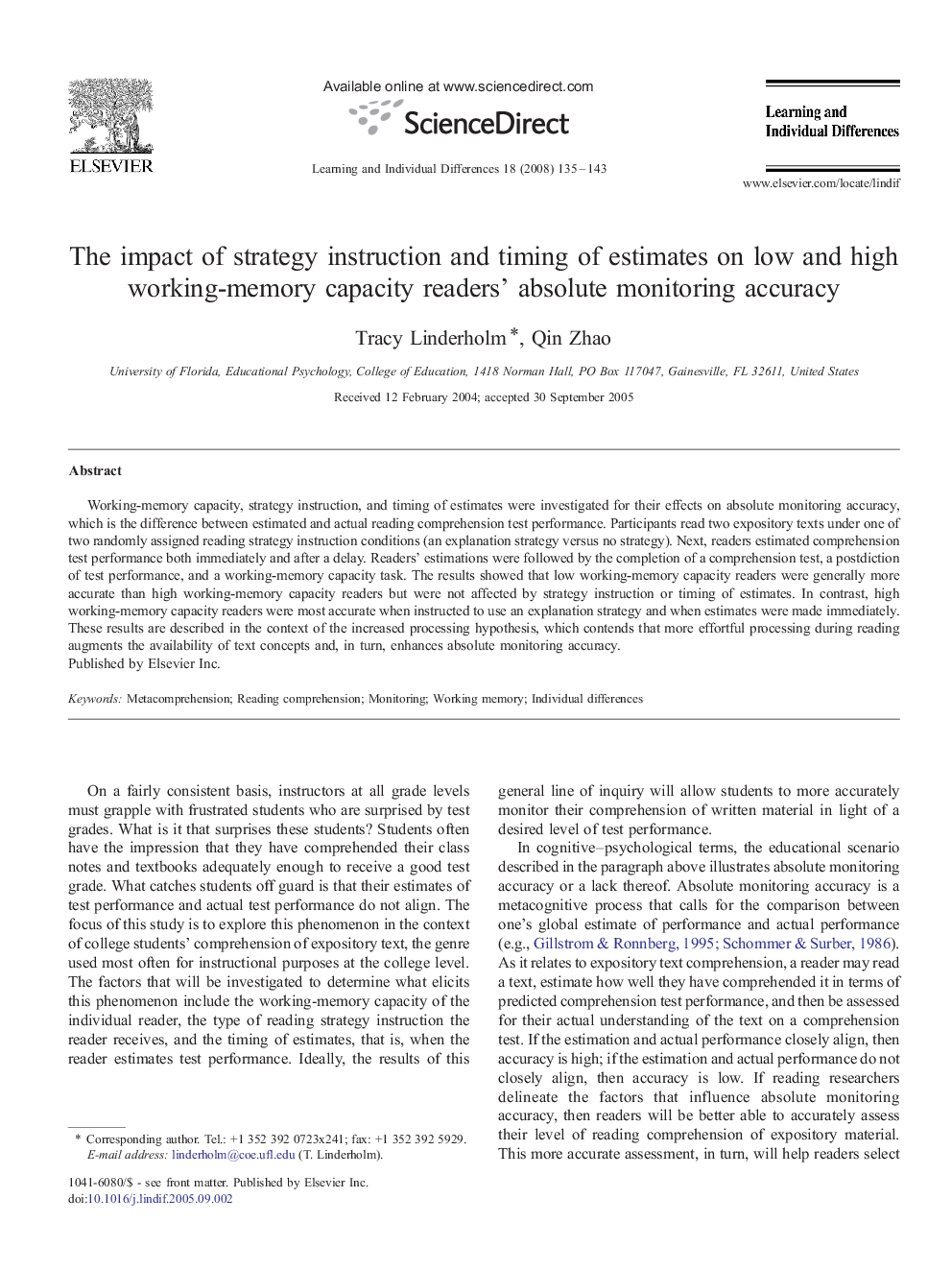| Article ID | Journal | Published Year | Pages | File Type |
|---|---|---|---|---|
| 365133 | Learning and Individual Differences | 2008 | 9 Pages |
Working-memory capacity, strategy instruction, and timing of estimates were investigated for their effects on absolute monitoring accuracy, which is the difference between estimated and actual reading comprehension test performance. Participants read two expository texts under one of two randomly assigned reading strategy instruction conditions (an explanation strategy versus no strategy). Next, readers estimated comprehension test performance both immediately and after a delay. Readers' estimations were followed by the completion of a comprehension test, a postdiction of test performance, and a working-memory capacity task. The results showed that low working-memory capacity readers were generally more accurate than high working-memory capacity readers but were not affected by strategy instruction or timing of estimates. In contrast, high working-memory capacity readers were most accurate when instructed to use an explanation strategy and when estimates were made immediately. These results are described in the context of the increased processing hypothesis, which contends that more effortful processing during reading augments the availability of text concepts and, in turn, enhances absolute monitoring accuracy.
